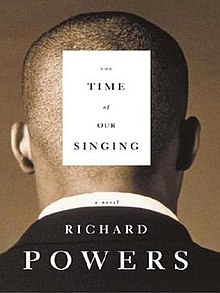It's all anyone can do, walking the street, balancing yourself on the sidewalk, resisting the urge to fall over because not so suddenly gravity has made you more ungainly and the earth feels as though it had shifted, just ever so little. Not much by the degrees we apply to objects we can hold in our hands and study and move and bounce off a curb or a bedroom wall, but with the earth , so massive, smothered in atmosphere and the burdening force of personal weight, the effect sends the city into a vibrant panic, tall buildings do a shimmer, power lines dance and spark.
On a fine day where you start out not giving a
high fiving fuck about personal health and the state of the arts in the
writerly communities that only invited you to a sequence of heartaches,
heartbreaks and drinking into and past stages of ill health, on a day when your
desire is grasp the intangible and abuse in terms of the intractable, your
knees quake , you knees ache, a pain shoots from the knee cap upward to the
spine and to the jaw, the mouth closes
and the teeth clench as if clamping down on a leather strap during an awkward
shave, molars sinking into a tart, chewy leather, and it is then when the best
arrogant notions and arrangements for making to midnight as a perfect asshole
and king of the city dump go awry.
The meals come off the wagon, you
realize there is nothing in the cupboard
for spare wit and ingenuity, you,
brilliant one and all that , are another victim of circumstances in a
life you didn’t vote to be in. But the good news in all this worry is that you did
not fall to the sidewalk, bust your jaw, and crack your teeth. Through sheer
force of will you shift your weight , project a Kirby hand, arm stretched out,
fingers splayed like the tines of bamboo rake, somehow all these halts your
descent, matters of mathematics and their freaky equations formulated at the
split second of stretch and the theory rushed up the spine to a brain otherwise
asleep with its camouflaged ego for an effective counter force to be indicated
and enforced by powers too awful to dwell on beyond a teasing mention.
You regain your center of being,
the property rights to a kingdom to shake anything off and reduce the conflicts
of personality clashes and enemy gravities to a compact pile of pressed tin,
and as you rise from stumble, as your vision takes in front porches made of
baked red brick and mail boxes marked with the graffiti of traveling men, there
he stands, your sweetie pie, the one in a
million, your very own kryptonite, a blonde beauty with eyes that could
flood the darkest theatre with light enough for lectures , readings and
concerts on the uptake. She stands there, head tilted to the side. You feel
like a specimen swimming about on a smooth glass slide. You cannot, you will
not win.
It's all anyone can do, walking
the street, balancing yourself on the sidewalk, resisting the urge to fall over
because not so suddenly gravity has made you more ungainly and the earth feels
as though it had shifted, just ever so little. Not much by the degrees we apply
to objects we can hold in our hands and study and move and bounce off a curb or
a bedroom wall, but with the earth , so massive, smothered in atmosphere and
the burdening force of personal weight, the effect sends the city into a
vibrant panic, tall buildings do a shimmer, power lines dance and spark.
On a fine day where you start out not giving a
high fiving fuck about personal health and the state of the arts in the
writerly communities that only invited you to a sequence of heartaches,
heartbreaks and drinking into and past stages of ill health, on a day when your
desire is grasp the intangible and abuse in terms of the intractable, your
knees quake , you knees ache, a pain shoots from the knee cap upward to the
spine and to the jaw, the mouth closes
and the teeth clench as if clamping down on a leather strap during an awkward
shave, molars sinking into a tart, chewy leather, and it is then when the best
arrogant notions and arrangements for making to midnight as a perfect asshole
and king of the city dump go awry.
The meals come off the wagon, you
realize there is nothing in the cupboard
for spare wit and ingenuity, you,
brilliant one and all that , are another victim of circumstances in a
life you didn’t vote to be in. But the good news in all this worry is that you did
not fall to the sidewalk, bust your jaw, and crack your teeth. Through sheer
force of will you shift your weight , project a Kirby hand, arm stretched out,
fingers splayed like the tines of bamboo rake, somehow all these halts your descent,
matters of mathematics and their freaky equations formulated at the split
second of stretch and the theory rushed up the spine to a brain otherwise
asleep with its camouflaged ego for an effective counter force to be indicated
and enforced by powers too awful to dwell on beyond a teasing mention.
You regain your center of being,
the property rights to a kingdom to shake anything off and reduce the conflicts
of personality clashes and enemy gravities to a compact pile of pressed tin,
and as you rise from stumble, as your vision takes in front porches made of
baked red brick and mail boxes marked with the graffiti of traveling men, there
he stands, your sweetie pie, the one in a
million, your very own kryptonite, a blonde beauty with eyes that could
flood the darkest theatre with light enough for lectures , readings and
concerts on the uptake. She stands there, head tilted to the side. You feel
like a specimen swimming about on a smooth glass slide. You cannot, you will
not win.



:format(jpeg):mode_rgb():quality(90)/discogs-images/R-1766995-1516656517-3547.jpeg.jpg)






